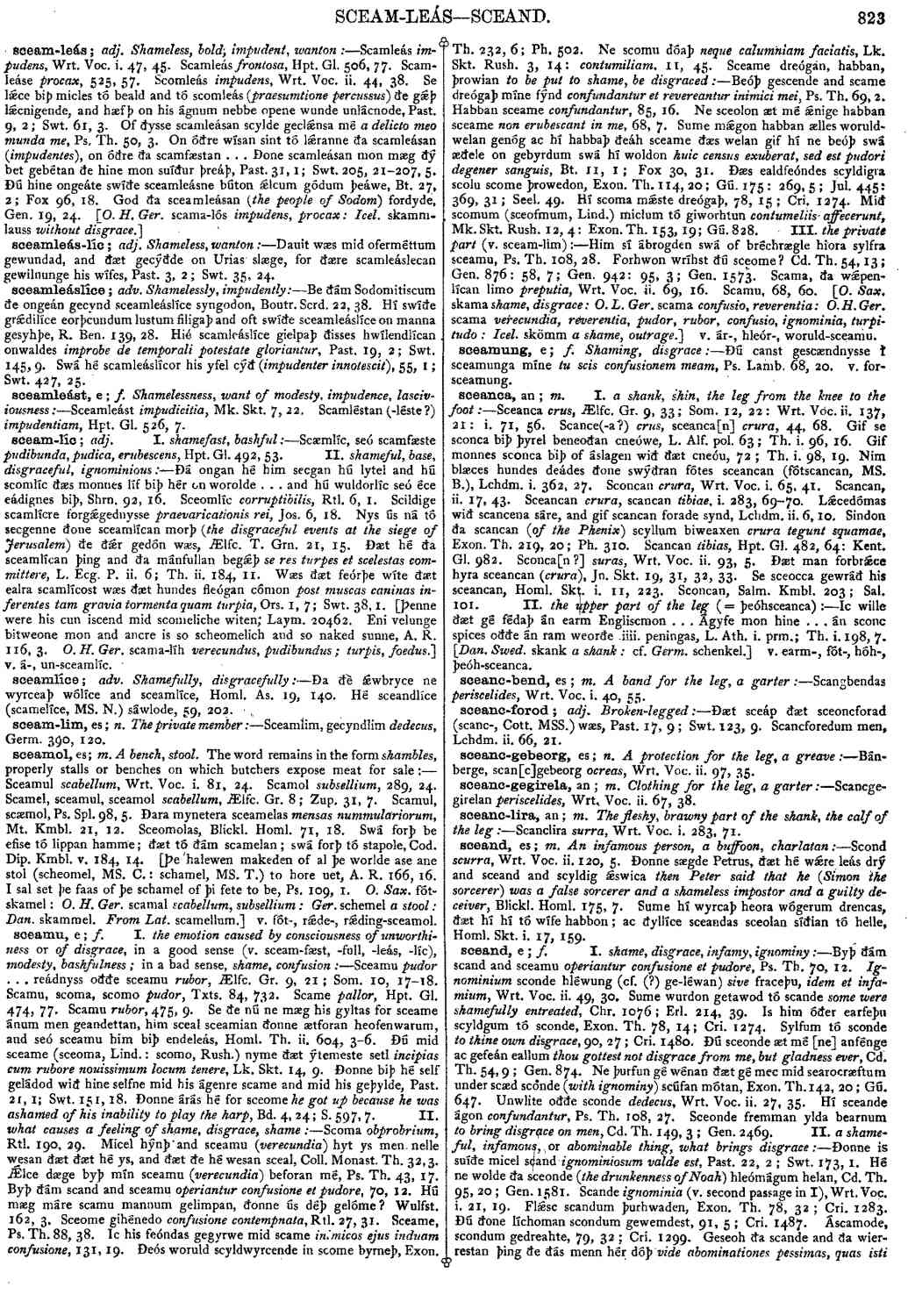sceand
- noun [ feminine ]
-
Byþ ðám scand and sceamu operiantur confusione et pudore, Ps. Th. 70, 12. Ig*-*nominium sconde hléwung (cf. (?) ge-léwan) sive fraceþu,
idem et infa*-*mium
,- Wrt. Voc. ii. 49, 30.
-
Sume wurdon getawod tó scande
some were shamefully entreated
,- Chr. 1076; Erl. 214, 39.
-
Is him óðer earfeþu scyldgum tó sconde. Exon. Th. 78,
- 14; Cri. 1274.
-
Sylfum tó sconde
to thine own disgrace
,- 90, 27; Cri. 1480.
-
Ðú sceonde æt mé [ne] anfénge ac gefeán eallum
thou gottest not disgrace from me, but gladness ever
,- Cd. Th. 54, 9 ; Gen. 874.
-
Ne þurfun gé wénan ðæt gé mec mid searocræftum under scæd sconde (
with ignominy
) scúfan mótan,- Exon. Th. 142, 20; Gú. 647.
-
Unwlite oððe sconde
dedecus
.- Wrt. Voc. ii. 27, 35.
-
Hí sceande ágon
confundantur
.- Ps. Th. 108, 27.
-
Sceonde fremman ylda bearnum
to bring disgrace on men
,- Cd. Th. 149, 3 ; Gen. 2469.
-
Ðonne is suíðe micel scand
ignominiosum valde est, Past. 22, 2 ; Swt. 173, l. Hé ne wolde ða sceonde (the drunkenness of Noah )
hleómágum helan.- Cd. Th. 95, 20; Gen. 1581.
- Scande ignominia (v. second passage in I.), Wrt. Voc. i. 21, 19. Flǽ sc scandum þurhwaden, Exon. Th. 78, 32 ; Cri. 1283. Ðú ðone líchoman scondum gewemdest, 91, 5 ; Cri. 1487. Áscamode, scondum gedreahte, 79, 32 ; Cri. 1299. Geseoh ða scande and ða wierrestan þing ðe ðás menn hér dóþ vide abominationes pessimas, quas isti faciunt hic,
- Past. 21, 3 ; Swt. 153, 20 : Swt. 155, 9. Sconde, Swt. 155, 8.
Bosworth, Joseph. “sceand.” In An Anglo-Saxon Dictionary Online, edited by Thomas Northcote Toller, Christ Sean, and Ondřej Tichy. Prague: Faculty of Arts, Charles University, 2014. https://bosworthtoller.com/26570.
Checked: 0